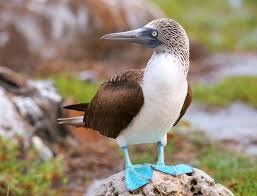These are just Google searches. I will take a look at the first result of each.
The first result from the first search you provided:
NC GOP bill would allow school librarians to be charged over books ‘harmful to minors’
Does it not seem a touch excessive to charge employees with a crime for doing their jobs? But let's see what, exactly, is considered "harmful material to minors."
I am struck by just how vague it all is. Who is determining "contemporary community standards"? Southern Baptists? Roman Catholics? Secular atheists? Surely, there are varying "contemporary community standards" within the state of North Carolina. Further, who is determining the "seriousness" of literary, artistic, political, or scientific value? By what metrics is that determined, if any?
The Herald Sun links to
a News & Observer piece that goes over 20 books the Wake County chapter of Moms for Liberty has tried to remove. The books include the following (obviously, I am not going to go through all twenty books):
- All Boys Aren't Blue: A Memoir-Manifesto. This is a book for young adults. Amazon suggests 16+ years of age. The description on Amazon reads:
From the memories of getting his teeth kicked out by bullies at age five, to flea marketing with his loving grandmother, to his first sexual relationships, this young-adult memoir weaves together the trials and triumphs faced by Black queer boys.
Both a primer for teens eager to be allies as well as a reassuring testimony for young queer men of color, All Boys Aren't Blue covers topics such as gender identity, toxic masculinity, brotherhood, family, structural marginalization, consent, and Black joy. Johnson's emotionally frank style of writing will appeal directly to young adults. (Johnson used he/him pronouns at the time of publication.)
It sounds like a perfectly acceptable book for high schoolers. I recall being assigned to read (note: not choosing to read) The Catcher in the Rye in my North Carolina public high school. The themes covered in that novel, including sexuality, don't sound any more problematic than the themes covered in All Boys Aren't Blue. To my knowledge, this book has never been assigned reading in any high school.
- Gender Queer: A Memoir. I selected this one out of the list because the News & Observer provided the argument of an opponent: "It’s a graphic novel autobiography that explores Kobabe’s [the author] path to identifying as nonbinary and asexual. It was cited by then-North Carolina Lt. Gov. Mark Robinson because of some illustrations of people having sex." I decided to take a look so you don't have to. The graphic novel, which is marketed for teenagers 16+, includes depictions of menstruation and sex toys. Mind you, I was assigned to read The Grapes of Wrath in my North Carolina public high school. Famously, that novel depicts a starving grown man being breastfed by a teenage girl who had a stillborn baby. The point is that depictions of arguably icky and sexual stuff are not at all foreign to high school libraries or even high school curriculum. To my knowledge, this graphic novel has never been assigned reading in any high school.
Interestingly, all the examples provided in the article are marketed for teens and young adults. None of them are for young children.
The second result from the second search you provided:
Parents settle lawsuit with Clark County School District over explicit assignment
I'll side with the parent on this one. Not because I believe "a monologue that contained explicit language" shouldn't be performed in a classroom. Parental consent should be sought first, however. It seems a touch shallow to suggest that a student-written monologue containing explicit language would be more disturbing or harmful than, say, a study of Elie Wiesel's
Night, which was, again, assigned in my high school.
Regardless, I don't see how any of this supports your claim that school districts promote and propagate sexuality and obscenity. Every high school I've been in, including the one I attended, does not allow profanities or obscenities in the classroom. Nor are sexually explicit acts or discussions allowed. For the purposes of education, material may contain such stuff. That's
always been the case, though.




